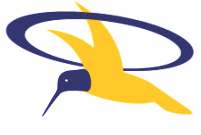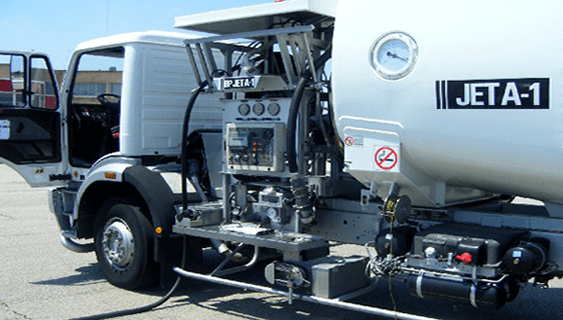There is palpable fear in the Nigerian aviation industry that Jet A1, otherwise known as aviation fuel, may be contaminated by independent fuel marketers following the hike in the price of the product to N275 per litre from N220 a few weeks ago.
Domestic air travelers may be compelled to pay more for air tickets as the product reaches an unprecedented rate in the country.
Also, Engr. Femi Adeniji, the Chief Executive Officer (CEO), TAL Helicopters, has warned that any aviation fuel cheaper than N275 per liter at the moment may have been “contaminated”.
This is as the Federal Government has been called upon to ensure local refining of the product in order to make sure airlines get the product tickets more affordable, at cheaper rates.
A source close to one of the airlines told Daily Independent on Tuesday that the product goes for between N255 per litre and N275, depending on the airport and the volume of litres an airline may want to purchase.
Also, an investigation conducted by Daily Independent revealed that the product is cheaper in Lagos and most southern states, but relatively higher in most northern airports.
Adeniji confirmed the hike of the product to N275 per litre.
He explained that the product is imported into Nigeria without any form of subsidy from the Federal Government, thereby leading to additional costs to operators.
On the effect on the flying public, Adeniji noted that the airlines are gradually increasing air tickets, especially in most major routes.
He said: “A litre is now N275 per litre and I can tell you there is a lot of fake fuel out there now.
“Any fuel you find is sold for N210 or N220 per litre is fake and this is dangerous for aviation. This is an accident waiting to happen.
“The airlines are gradually increasing the air tickets. I just bought a return ticket to Enugu at N103,000.
“The Abuja one-way ticket I bought last week was N76,000. So, it is affecting air travel immensely.
“The airlines are already charging higher prices and the Federal Government is not doing anything about it.”
He suggested to the Federal Government to peg the price of aviation fuel, stressing that the airlines could only be helped through subsidy and not cash grant.
According to him, the government could expunge the Value Added Tax (VAT) for operators, stressing that airlines in the country enjoyed nothing from the government unlike their counterparts in Europe, the Middle East, and America.
Also, a source close to one of the airlines said this was the right time for airline crew to watch out for “fake fuel” from the independent marketers.
“Due to this price, I want to advise our colleagues to watch out for fake fuel.
“Please, ensure your crew, particularly pilots and engineers, comply with proper fuel tests and not leave the responsibility to the vendors alone,” the source said.
Besides, Olumide Ohunayo, Director, Research, Zenith Travels, lamented that aviation fuel alone consumes about 30 to 40 percent of airline expenses.
Ohunayo, however, explained that the sub-sector was deregulated, but noted that in order to cushion the effect of the high price, the Federal Government should repair the Nigerian National Petroleum Corporation (NNPC) underground pipe between Ejigbo and the Lagos airport.
He explained that for the airlines to benefit from the product’s pricing, they either buy in bulk or edge, which, he said, required a lump sum.
He observed that passengers may bear the brunt as airlines would further increase airfares, while same passengers may witness flight delays and cancellations.
Already, a one-way ticket on the Lagos-Abuja route goes for between N60,000 and N91,000 on most airlines.
Just on Sunday, a one-way ticket from Abuja to Lagos went as high as N120,000.
To encourage the operators and reduce fares, Ohunayo also canvassed some tax waivers for operators from the government agencies.
He said: “Aviation fuel is deregulated in Nigeria. Unfortunately for the industry, 30 to 40 percent operation expenses come from aviation fuel.
“The only way we can benefit from aviation fuel pricing is if you have a bulk purchase or edging and for you to edge, you must have enough money to edge fuel or you belong to an association whereby it is a policy that the higher you buy, the lower the price.
“Airlines in Nigeria don’t have any alliance or involvement in any serious organisation or association.
“So, every airline deals with importers on an individual basis. They bear the brunt of the increase in fuel.
“Once there is any increase in fuel, the first set of people that gets the fire are the passengers; the tickets go up, flight may be delayed because, at times, it may not be available and if it is available, suppliers may be demanding cash because of the cost of the product.”
He also expressed fears that some of the independent marketers might engage in shady deals to remain in business and challenged the Nigerian Civil Aviation Authority (NCAA) and other organisations involved in the industry to set up a testing laboratory to prevent fuel contamination and ensure product’s compliance with modern equipment.
He added: “Yes, it is possible to have fuel contamination. At the end of the day, the NCAA will need to work with the suppliers themselves.
“The suppliers are the ones that should self-regulate before the regulator comes in.
“The NCAA can only come in to ensure supervisory and oversight on what it has done.
“The industry generally supports self-regulation. You saw the Azman case.
“We expect the Joint Users Hydrant Installation (JUHI), a committee of aviation fuel importers to set up a self-regulatory body within themselves to ensure that the fuel supply taken to the industry has not been contaminated.
“Once the price increases, there is the tendency to actually do that and this can affect safety,” he said.
Besides, Capt. Ibrahim Mshelia, the Chief Executive Officer (CEO), West Link Airlines, like Ohunayo, said fuel contamination was possible, but insisted it was not common in the sector.
Mshelia observed that contamination may be as a result of rain, foreign objects or fluids in the hydrants.
Besides, he called on the government to encourage competition in the sub-sector, secure local refining of Jet A1, remove total duty on aircraft and spare parts for all Air Operators’ Certificate (AOC) holders and aircraft certified for commercial purposes.
He added: “The total removal of Value Added Tax (VAT) and slots for forex to be granted every commercial operator to buy dollars and fund foreign payments, spare parts and training, among others.
“Currently, those who get, sell to airlines at black market rate and that is not progressive at all. Airlines need the forex as a necessity particularly for safety enhancement through spares and even foreign periodic C-checks where facilities don’t exist locally.
“It’s a serious appeal that government considers airlines before the forex bureaux.”
Also, Grp. Capt. John Ojikutu, aviation analyst, said it was the duty of the NCAA to ensure compliance with the quality of fuel to be supplied to airlines.
Ojikutu also appealed to the NCAA to ensure establishment of a laboratory by JUHI at the airports, especially at the Lagos airport, to test and ensure that the fuel discharged into aircraft met the required standard.
“How regular has the NCAA been conducting safety audits on JUHI?” Ojikutu queried.
Source: The Independent

